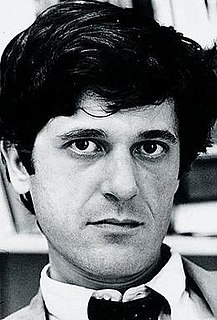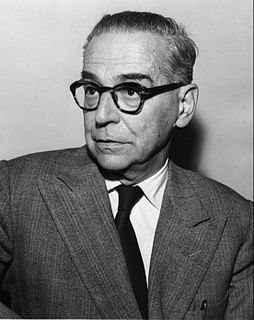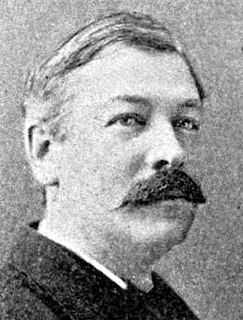A Quote by Bodhidharma
The true Way is sublime. It can't be expressed in language. Of what use are scriptures? But someone who sees his own nature finds the Way, even if he can't read a word.
Related Quotes
Sometimes language gets in the way of the story's feelings. The reader finds himself experiencing the language of the story rather than the story. The words sit there on the page like coins, with their own opacity, as though they're there for their own sake. "A man goes into a phone booth, stirring coins in his palm." "Stirring" is such an obviously selected word. You can feel the writer looking for the word as he sat at the typewriter.
Some feminist critics debate whether we take our meaning and sense of self from language and in that process become phallocentric ourselves, or if there is a use of language that is, or can be, feminine. Some, like myself, think that language is itself neither male nor female; it is creatively expansive enough to be of use to those who have the wit and art to wrest from it their own significance. Even the dread patriarchs have not found a way to 'own' language any more than they have found a way to 'own' earth (though many seem to believe that both are possible).
When the father dies, he writes, the son becomes his own father and his own son. He looks at is son and sees himself in the face of the boy. He imagines what the boy sees when he looks at him and finds himself becoming his own father. Inexplicably, he is moved by this. It is not just the sight of the boy that moves him, not even the thought of standing inside his father, but what he sees in the boy of his own vanished past. It is a nostalgia for his own life that he feels, perhaps, a memory of his own boyhood as a son to his father.
I believe that we must use language. If it is used in a feminist perspective, with a feminist sensibility, language will find itself changed in a feminist manner. It will nonetheless be the language. You can't not use this universal instrument; you can't create an artificial language, in my opinion. But naturally, each writer must use it in his/her own way.
There comes a time when a man finds himself in front of a dark uncrossable abyss, which he himself has spent years digging. He cannot go forward, and has no way back. Words have failed, tears won't help, and who would he call out to? He can't even remember his own name. Then the man sees that on this god's green earth there is but one true suffering: the torment of guilty conscience.
The typical atheist rebels against God as a teenager rebels against his parents. When his own desires or standards are not fulfilled in the way that he sees fit, he, in revolt, storms out of the house in denial of the Word of God and in scrutiny of a great deal of those who stand by the Word of God. The epithet 'Heavenly Father' is a grand reflection, a relation to that of human nature.
There’s different ways to be impacted by truth. One is to read the scriptures. Another is to read other works by other people who have read the scriptures, non fiction for example. Another is to do studies. Another is to go to a place of worship. Another thing is to sit and listen to someone who’s speaking. There’s all kinds of ways. Another way is to write. About the truth. Discover the struggle through your character.
You live in a society that is shaped in every possible way by the Bible. The language you use, the laws you obey (and disobey), the founding principles of your nation, the disputes about abortion, homosexuality, adultery - these and so much else in your world are rooted in the Bible. You don't have to read it for its truth value. You should read it to understand how your world got the way it is, the way you would read the constitution or Shakespeare.
We need to acknowledge that there is a real issue with how the Scriptures are being interpreted. Whenever I am told that terrorists are not Muslim, I systematically reply that they actually are, and they cannot be marginalised, the same way they are marginalising other Muslim people. Scriptures are quoted even though their interpretations are twisted. In the face of misinterpretation the only way out would be using another interpretation of the Scriptures.
No man could bring himself to reveal his true character, and, above all, his true limitations as a citizen and a Christian, his true meannesses, his true imbecilities, to his friends, or even to his wife. Honest autobiography is therefore a contradiction in terms: the moment a man considers himself, even in petto, he tries to gild and fresco himself. Thus a man's wife, however realistic her view of him, always flatters him in the end, for the worst she sees in him is appreciably better, by the time she sees it, than what is actually there.









































